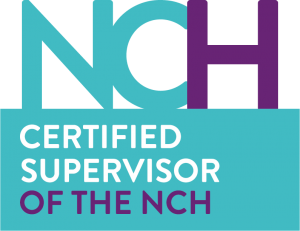Breaking Habits with Hypnosis in Southampton

Introduction
Every day people have change thrust upon them, mainly due to the ever increasing globalization in which we find ourselves but some of that change is due to our personal experiences. People often become aware at some stage in their lives that they need to implement changes, either professionally in their behaviors, thinking, or indeed their perceptions or in their personal lives. These personal changes may be due to anxieties, trauma, bereavement, addictions, habits or a whole host of other physiological and behavioral problems.
As a coach and hypnotherapist, change through transformative learning is what I am asked to deliver on a daily basis. One of the recurring question would seem to be ‘how many sessions will I need?’ I give people a completely truthful answer in that I just don’t know. Some people experience almost miraculous change after just one session, whilst others take much longer with a gradual transformation. For those that do change just one session I feel thrilled, elated and it reinforces my drive, motivation and enthusiasm for my profession. The longer it takes a client to change, the more we question ourselves as therapists, but really we shouldn't, there are so many complex factors at play here and change can always happen.
So is there any evidence that suggests how long change really takes to implement and become embedded?
When looking for figures that explain how long changes take to embed, it’s a real confusion of information. In Malcolm Gladwell’s book outliers, he states that 10,000 hours is enough to deliver an excellent, expert level of skill and performance. Other figures for habit forming are quoted as 21-28 days or 6-18 months. These figures really aren’t helpful when seeking to understand how long clients may take to change behaviour permanently.
Latest Research
If you look around the Internet at the moment you will find plenty of articles explaining that 66 days would appear to be the new time frame to form a new habits (Lally et al, 2009). On the face of this bold statement I was fairly happy with the figure stated, but as a researcher I was loathed to merely accept this as fact. When looking into the research, it is evident that the figure was arrived at by looking at the median time of the research participants, i.e. is/was based upon a mathematical calculation from the analysis, the participant times ranged from 18 to 254 days. The researchers explained the following:
“In our study, we looked at how long it took people to reach a limit of self-reported automaticity for performing an initially new behaviour (that is, performing an action automatically), and the average time (among those for whom our model was a good fit) was 66 days.”
As you may know, a habit is an action that is performed automatically, intuitively through the sub-conscious mind. It has manifested because of repetition of the action. It has been said that in some case of neuroplasticity, a repetitive action of 10,000 repetitions is the figure to cause new linkages in the mind, that is new connections between neurons to be made. Yet, in habit forming there is a cue, a trigger and then the behaviour manifests. So in due course, due to a stimulus the habit forms and is carried out subconsciously and automatically.
People are creatures of habit – we conduct the same routines over again and again. Just think about your own routines from waking until evening sleep comes. It is no wonder why some bad habits are formed, often though some habit formation is a good thing, while sometimes the things we do often do drive inappropriate behaviors. Lally stated that “Breaking habits is very difficult. The easiest way is to control your environment so that you do not encounter the cue which triggers your habit. It is difficult to break any habit even when you are motivated to do so. If you are ambivalent about breaking it then you will be less likely to succeed” (2009).
In the study it was shown that there was no difference about how people develop their habits and that it doesn’t matter about sex or age when it comes to forming new routines. Neither did missing the odd one or two matter that much as it did not significantly impact the formation of the desired outcome, however, the research did not address the “level of consistency needed to form a habit.”
The researchers stated that:
“It can take much longer than many people think to form a habit and it is important to persevere. If someone wants to form a habit they should specify clearly what they will do and in what situation and try to do this consistently. Over time it will start to happen more easily and require less effort.”
Conclusion
The research looked at the time frame for the creation of a new habit, which is an automatic behaviour without thinking consciously about conducting that action. Although 66 days was quoted, this is a meantime and therefore some participants took much longer some much less and therefore anywhere between 18 and 245 days could well be needed. There was no evidence or suggestion regarding the breaking of a deep rooted and well defined habit and yet creating new habits would be a perfectly logical assumption to make in the cessation of old habits. What is absolutely crucial, is the client’s motivations and desire to change, without this, there simply is no change. How long will the client take for their new habits to become persistent – well, the jury really remains out, but if the individual hasn't returned or regressed to old behaviors within a year then the behaviour could be said to be permanent. If this is coupled with conducting the behaviors without thinking, then truly a new habit has formed.
In hypnosis, we put these new habits into practice straight away in the session so the subconscious mind has already done the new actions and tried out the new behaviors many times over – thus giving change the very best chances of success. Suggestion is very powerful – once in the deepest areas of the mind, you can’t help but act upon it in some way.
Don’t think of a pink elephant – is the old saying… So, what habits would you like to form in your personal or professional life? How do you approach change situations? Would you like support? If so, then please do book an appointment or contact me to find out more about how coaching or hypnosis can help your change journey.
Regards
Iain
Reference:
Lally, P, et al,. (2009). How habits are formed: Modelling habit formation in the real world. European Journal of Social Psychology, 40 (1), 998-1009.





